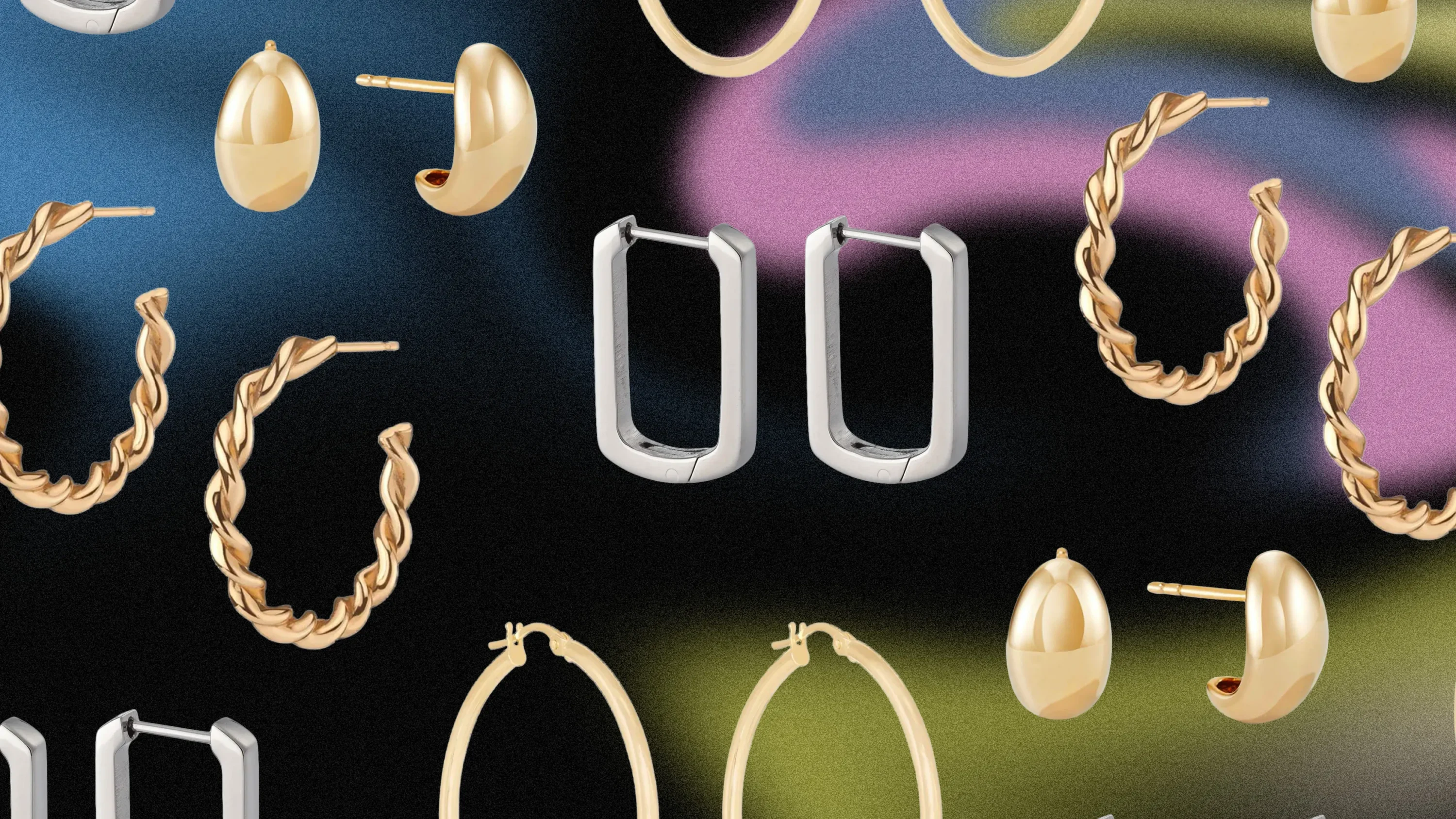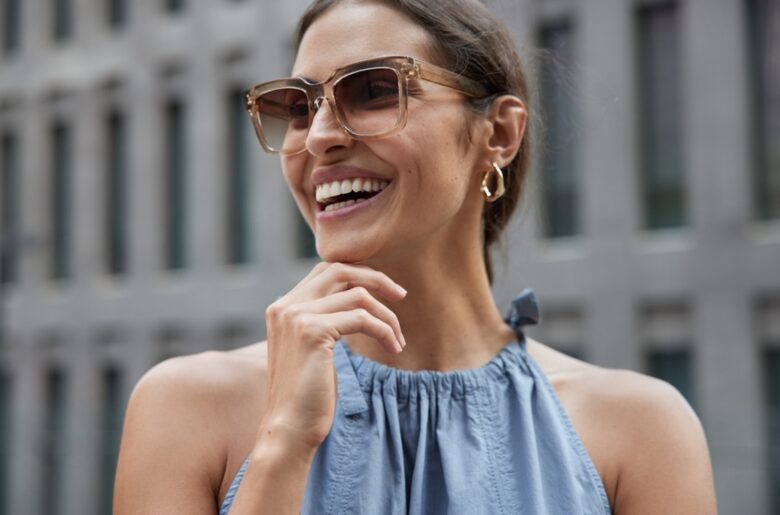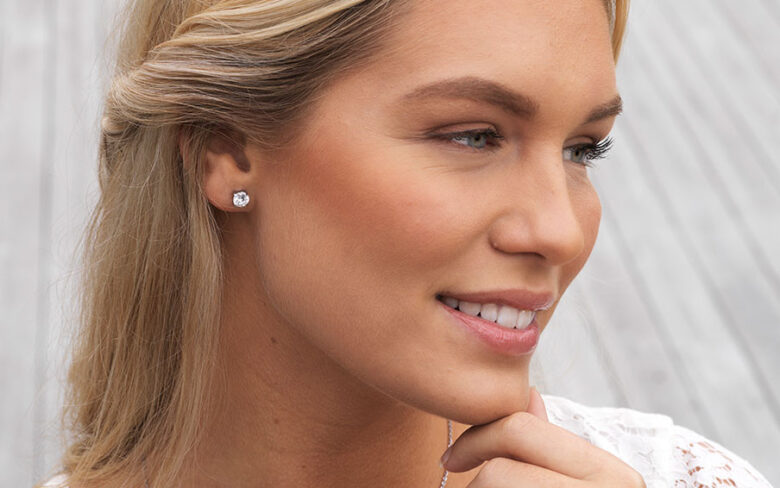Welcome to Ear Care 101, where we dive into essential tips for women with sensitive ears. If you’re tired of dealing with discomfort and irritation, this guide is for you. Sensitive ears can be a real challenge, but fear not, because we’ve got you covered. In this article, we’ll explore five practical tips to help you keep your ears happy and healthy.
With all the new fashion trends constantly coming in and out of style, those who suffer with sensitive ears could feel like they are being left out. Finding earrings that don’t cause pain and are perfect for your next weekend brunch can be challenging.
You love earrings but are allergic to them, right? Don’t give up hope just yet! We’ve got the full scoop on how to choose earrings for sensitive ears and still be fashionably beautiful.

Source: glamour.com
Contents
How do I know if I have jewelry allergies?
Having sensitive ears is typically something that occurs over time. Allergies occur when your body responds to foreign objects by sending out antibodies to attack the substance and producing a chemical called histamine – which leads to redness, itchiness, swelling, rash, or skin blistering. Women that are sensitive to contact allergies from metals, like nickel and copper, tend to have these symptoms.
The most common allergen is nickel. Your sensitivity to nickel may develop after first contact or prolonged periods of time. Unfortunately, once your body has developed a reaction to a particular allergen your immune system will always react to it.
If your earlobes turn red or become itchy every time you wear earrings, you not only have sensitive ears, but likely, a metal allergy.

What are the best materials and earrings styles for sensitive skin?
Materials that work best for sensitive ears are pure metals like gold, sterling silver, titanium, stainless steel, and platinum. These metals are considered biocompatible, meaning they can coexist with the human body without reaction. But although these are hypoallergenic metals that contain very little to no nickel, they are not the best option for everyday wear. When it comes to durability, pure metals are soft so they bend and scratch easily.
Nickel is the most common metal allergy which is why you see many earrings labeled as “nickel-free”. However, this metal is frequently used in manufacturing because it bonds easily with other metals, it’s inexpensive, and durable. If you take your time to find responsible jewelers, you can reduce the likelihood of buying low-quality earrings that contain high amounts of nickel.
As for the best styles, this mostly depends on the amount contact the earring has with the ear. Luckily, among other jewelries, earrings tend to have the least amount of contact with the skin.
It is important to look for styles that are gentle on the skin and do not cause much friction. Of course, wear what you love but studs, hoops, and cartilage earrings tend to be better choices as they do not dangle or move around much to cause irritation. Drop earrings could also be a good option depending on the design of the earring hook and overall weight of the earrings.
You should also consider adding earring sleeves to the hooks for better ear protection.

Source: blomdahlusa.com
Do earring backs have an effect on sensitive ears?
Yes. Earring backs are an important factor to consider when it comes to sensitive ears. Some options like screw and lever backs, as well as silicone, are great because they stay securely in place, do not apply further pressure to the earlobe, and are soft and flexible.
You should also consider earring backs made of plastic. Generally, this material is more kind to your skin, hypoallergenic, and typically has less irritation than metal.
Here’s a quick tip for the next time you’re sharing a bottle of wine with your friends and feel an itch coming on. Remove a tiny piece of cork from the open bottle and secure your earring with it. It’s 100% organic after all!

Are there precautions I should take?
Yes, most definitely. Here are some helpful tips if you suffer from ear sensitivity:
- Meet with a dermatologist for a skin patch test to determine if you have a metal allergy. This involves applying diluted allergens to the skin and monitoring reactions over several days. Once nickel or any other allergy is confirmed, you should avoid contact with that metal as much as possible. Because you now know what to look for, it is much easier to narrow down your search. Keep in mind that allergic reactions may not always be caused by earrings so it’s important to test. In some cases, the cause could be from friction or possibly the area where your ears were pierced was infected. Before getting your ears pierced, be sure the artist uses sterile, nickel-free, or stainless-steel needles in sealed packages.
- Search for hypoallergenic earrings. In many cases, gold-filled, and in other cases gold-plated earrings, are some of the best options for sensitive ears. This all depends on the manufacturer and the thickness of the gold layer used to make the earrings. Remember, gold-filled earrings are comprised of a thick layer of gold bonded to a base metal like brass or sterling silver.
- Wear protective earrings sleeves. But let’s say you found earrings you simply can’t resist and they likely contain a considerable amount of nickel – there’s still hope! Add silicone or plastic anti-allergy earring sleeves. These sleeves slide onto your earring posts or ear hooks to protect your pierced ears from metals you’re sensitive to by creating a physical barrier between the earrings and your ear.
- Be sure to clean your earrings. Always be sure to wash your hands before putting on or removing earrings. You can simply clean them with soap and water using a cotton swab.
- Take periodic breaks. We all need a break from life sometimes – and that includes earrings. Just a short break though! If your earrings cause pain, try wearing them for shorter periods at a time or only for special occasions.

Source: cosmopolitan.com
While there are plenty of options in the market, you should do your due diligence and research quality earrings. Be sure to buy earrings for sensitive ears from stores and online boutiques that specialize in earrings. Investing in quality earrings can be affordable and save you from discomfort in the long-term. By choosing the right earrings, you can complement your look without compromising your health.
